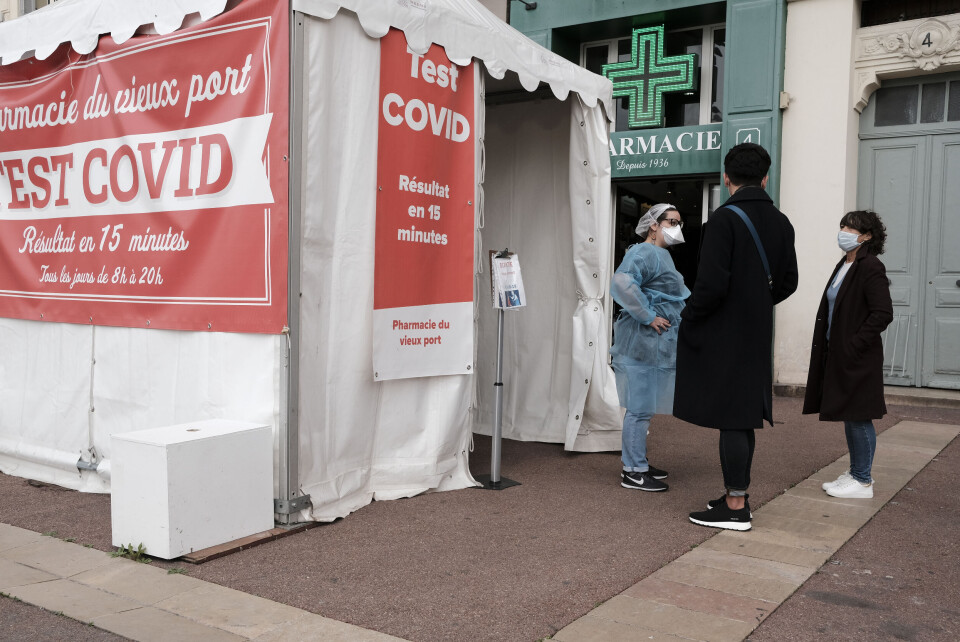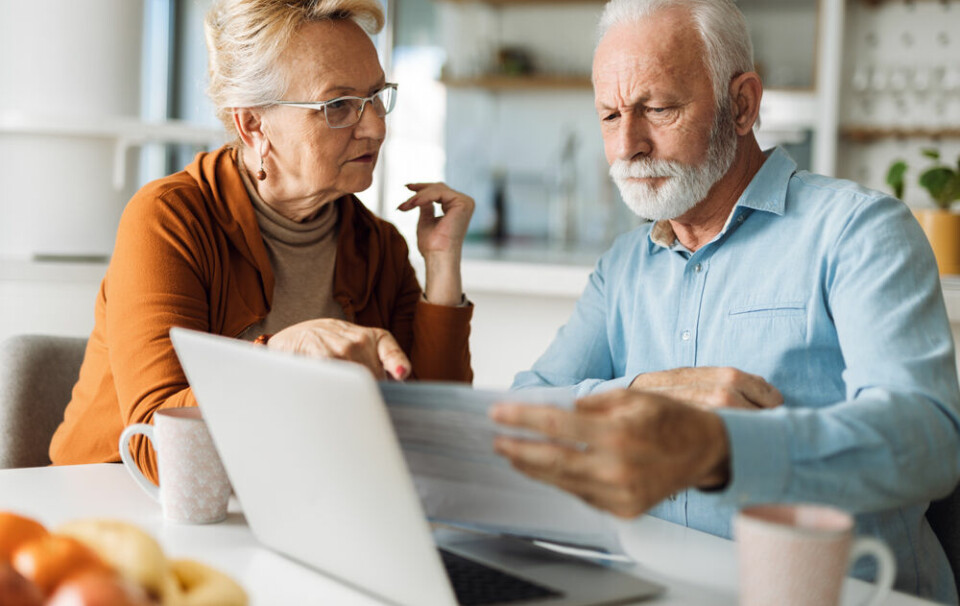-
New rules aim to stop ‘spoofing’ calls in France: what are these?
Calls from French numbers abroad will need to be verified or show as ‘hidden number’, with residents urged to be vigilant about answering
-
Ryanair confirms routes to Dole-Jura airport maintained in summer 2026
Airline previously said that more routes to France will be axed next year
-
Explosion at chemical plant near Lyon: where are other ‘at risk’ sites in France?
An estimated 2.5 million people live within a kilometre of a French Seveso site
Covid France: ‘why we should test less but better’ and other updates
Free tests are now available at pharmacies on presentation of a sworn statement, a new anti-Covid pill is approved and problems with cold weather affecting test results

We cover four updates on Covid testing, medicines and vaccinations in France today (Friday, January 28).
Read more:Coronavirus: Daily updates on the situation in France
Read more:Covid-19: Rules for travel to and from France
1. Free tests at pharmacies
At-home antigen Covid tests are now available for free from pharmacies upon presentation of an ‘attestation sur l’honneur’ (sworn statement). The statement attests that you are fully vaccinated, are a contact case and have had a negative PCR test.
This statement is available to download from the Assurance maladie website. Without this, you will need to pay for your tests. You can find a map of participating pharmacies here.
Tests are required for contacts of confirmed cases to ensure that they are Covid-free.
Recap of the rules for contact cases:
Fully-vaccinated contact cases no longer need to self-isolate but they must self-test on day one, day three, and day five.
Unvaccinated contacts must self-isolate for seven days after they are notified as a contact, and test on day one, day three, and day five.
Contact children aged under 12 must take tests on day one, day three, and day five, and if the test is negative, parents must sign another document, "Attestation sur l’honneur – Retour à l’école d’un cas contact après un autotest" (Sworn statement, return to school for a contact case after a self-test).
2. Anti-Covid pill approved by European Medicines Agency
Paxlovid, the anti-Covid pill by American lab Pfizer, has been approved by the European Medicines Agency (EMA). It is the first anti-Covid pill to have received EMA approval.
Read more:New anti-Covid pill approved in France, first delivery due next week
In a statement, the EMA said it “recommended the authorisation of Paxlovid for Covid-19 treatment in adults who do not need extra oxygen, who have a strong risk of the illness becoming severe”.
French health authority La Haute autorité de Santé had already approved early access to the pill in some cases, in December 2021.
Clinical trials have shown that the antiviral pill reduces the risk of developing a severe form of Covid (needing hospitalisation) by 85%, and that it is also effective against the Omicron variant.
The treatment plan is three pills per day for five days, starting as soon as possible after the first positive Covid test, and within five days maximum after the appearance of symptoms.
3. Pharmacists warn of risk of incorrect test results due to cold weather
Self-tests and antigen tests can show an incorrect false positive result when taken in temperatures of around 2C or less as cold temperatures can affect the chemical workings of the tests, pharmacists in France have warned.
This is especially a risk for tests taken in the many outdoor testing marquees or tents.
Some tent staff have been trying to find indoor spaces to store and perform the tests as a result – even if only a temporary portable cabin – “to ensure the results are as trustworthy as possible”, one worker told FranceInfo.
Pharmacist union l'Union de syndicats de pharmaciens d'officine (USPO) is calling on the government to perform more checks on outdoor testing tents, and reminding staff that the tests can be sensitive to the cold.
"Tests should not be stored in the cold [...] and then, when they are performed, they should be done above 7 or 8 degrees," said Gilles Bonnefond, the spokesperson for USPO.
President of medical biologists union le syndicat national ‘’Les Biologistes médicaux’’ (Biomed) told FranceInfo that self-tests should be used “with caution”, because they are not as reliable as PCR tests.
He said: “Self-tests do not detect large viral charges, so they are less than 44% reliable for people without symptoms. Out of 10 infected people [without symptoms], there will probably be seven to eight false negatives with self-tests.”
He also said that people are advised to “test less, but better”, and that it is only really useful for people who have symptoms. He said that testing people who have already tested positive, just to see if they are still contagious, was largely a waste of tests.
4. Healthcare staff must have mandatory booster jab
From Sunday, January 30, healthcare staff are required to have a booster jab in order to continue working.
The rules mean that in practice, directors are required to collect proof of booster vaccination from 2.7 million staff by Sunday.
However, some hospital directors have said that this is adding extra complications to an already difficult time, as Omicron continues to spread.
Maxime Morin, director of the Roubaix hospital, told FranceInfo that he had only collected half the certificates required from his staff. He said: “It’s not really a good time, at very short notice, when establishments are already very busy and affected by this [Omicron] wave.
“We have enough to do without adding this problem.”
Hospitals also have to keep track of which staff have had the booster, and which have not because they have recently recovered from the infection.
And, from February 15, booster doses will be required four months, rather than seven months, after the last injection, adding extra pressure on staff who have not yet had their booster.
Related articles
Network of 62,000 fake health passes dismantled in France
Ten key changes and updates for residents in France in February 2022
Why France is hesitating over fourth Covid vaccine dose
























